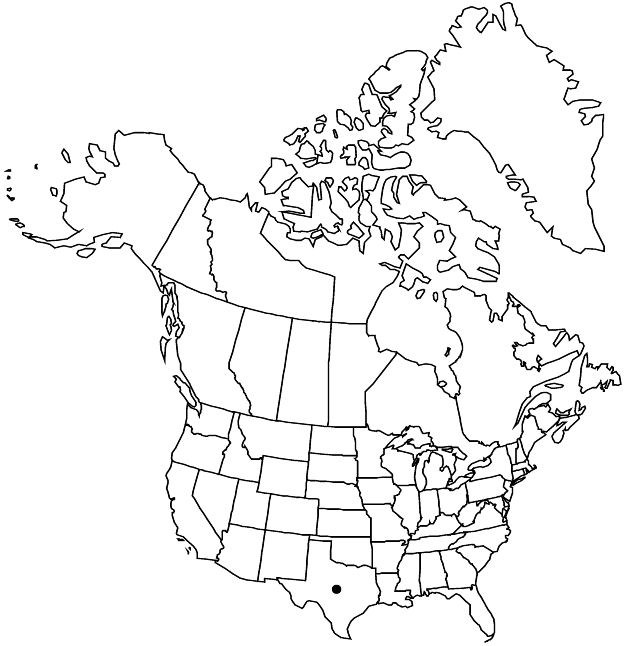Difference between revisions of "Euphorbia angusta"
in W. H. Emory, Rep. U.S. Mex. Bound. 2(1): 189. 1859.
FNA>Volume Importer |
imported>Volume Importer |
||
| (3 intermediate revisions by 2 users not shown) | |||
| Line 1: | Line 1: | ||
{{Treatment/ID | {{Treatment/ID | ||
|accepted_name=Euphorbia angusta | |accepted_name=Euphorbia angusta | ||
| − | |accepted_authority=Engelmann | + | |accepted_authority=Engelmann |
|publications={{Treatment/Publication | |publications={{Treatment/Publication | ||
| − | |title=Rep. U.S. Mex. Bound. | + | |title=in W. H. Emory, Rep. U.S. Mex. Bound. |
|place=2(1): 189. 1859 | |place=2(1): 189. 1859 | ||
|year=1859 | |year=1859 | ||
| Line 12: | Line 12: | ||
|name=Chamaesyce angusta | |name=Chamaesyce angusta | ||
|authority=(Engelmann) Small | |authority=(Engelmann) Small | ||
| + | |rank=species | ||
}} | }} | ||
|hierarchy=Euphorbiaceae;Euphorbia;Euphorbia sect. Anisophyllum;Euphorbia angusta | |hierarchy=Euphorbiaceae;Euphorbia;Euphorbia sect. Anisophyllum;Euphorbia angusta | ||
| Line 36: | Line 37: | ||
-->{{#Taxon: | -->{{#Taxon: | ||
name=Euphorbia angusta | name=Euphorbia angusta | ||
| − | + | |authority=Engelmann | |
| − | |authority=Engelmann | ||
|rank=species | |rank=species | ||
|parent rank=section | |parent rank=section | ||
| Line 48: | Line 48: | ||
|distribution=Tex.;Mexico (Coahuila). | |distribution=Tex.;Mexico (Coahuila). | ||
|reference=None | |reference=None | ||
| − | |publication title=Rep. U.S. Mex. Bound. | + | |publication title=in W. H. Emory, Rep. U.S. Mex. Bound. |
|publication year=1859 | |publication year=1859 | ||
|special status= | |special status= | ||
| − | |source xml=https:// | + | |source xml=https://bitbucket.org/aafc-mbb/fna-data-curation/src/2e0870ddd59836b60bcf96646a41e87ea5a5943a/coarse_grained_fna_xml/V12/V12_396.xml |
|genus=Euphorbia | |genus=Euphorbia | ||
|section=Euphorbia sect. Anisophyllum | |section=Euphorbia sect. Anisophyllum | ||
Latest revision as of 19:15, 5 November 2020
Herbs, perennial, with moderately to strongly thickened rootstock. Stems erect, 12–43 cm, uniformly strigose. Leaves opposite; stipules distinct, linear-subulate or nodiform to papilliform nodiform to papilliform stipules often reddish brown, 0.1–0.7 mm, strigose; petiole 0.3–1.2 mm, strigose; blade: proximal ovate to ovate-elliptic, distal linear to elliptic-linear, 7–41 × 2–5 mm, distal leaf blades more than 6 times as long as wide, base asymmetric, cuneate to rounded, margins entire, often involute on drying, apex acute, surfaces usually short strigose, occasionally glabrous adaxially; venation pinnate, only midvein conspicuous. Cyathia solitary at distal nodes; peduncle 1.1–2.4 mm. Involucre turbinate to campanulate-turbinate, 1–1.5 × 1–1.4 mm, strigose; glands 4, green to yellow-green, concave, narrowly oblong, 0.2–0.4 × 0.4–0.7 mm; appendages white, flabellate, 0.5–1.1 × 0.3–0.5 mm, distal margin shallowly and irregularly toothed. Staminate flowers 16–26. Pistillate flowers: ovary strigose; styles 0.3–0.5 mm, 2-fid at apex to almost 1/2 length. Capsules broadly ovoid, 2–2.6 × 2.5–3 mm, strigose; columella 1.6–2.2 mm. Seeds white, ovoid, 4-angled in cross section, 1.7–2.2 × 1.1–1.2 mm, transversely low-ridged or wrinkled. 2n = 28.
Phenology: Flowering and fruiting early spring–fall.
Habitat: Rocky limestone soils.
Elevation: 400–1200 m.
Distribution

Tex., Mexico (Coahuila).
Discussion
Euphorbia angusta, which in the flora area is known from the trans-Pecos region to the Edwards Plateau, is easily recognized by its erect habit, linear leaves, and relatively showy involucral gland appendages with toothed margins. The species is closely related to E. acuta and the Mexican endemic E. johnstonii Mayfield (M. H. Mayfield 1991); it is not only morphologically distinctive but is also the only species in sect. Anisophyllum with C3 photosynthesis (R. F. Sage et al. 2011; T. L. Sage et al. 2011; G. L. Webster 1975).
Selected References
None.